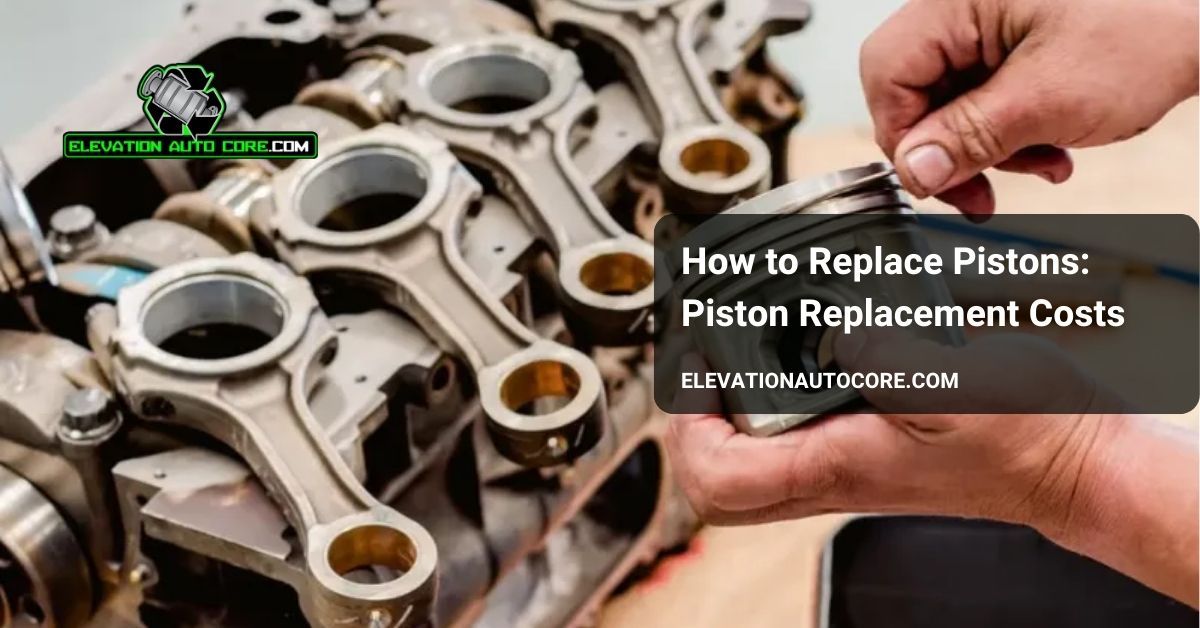Ever wondered what it takes to replace pistons or how much piston replacement might cost? Whether you’re dealing with engine trouble or planning a rebuild, understanding the process and expenses involved is crucial. Stick around to learn what goes into replacing pistons and what you can expect to pay for this essential repair.
What Are Pistons And Why Are They Important?
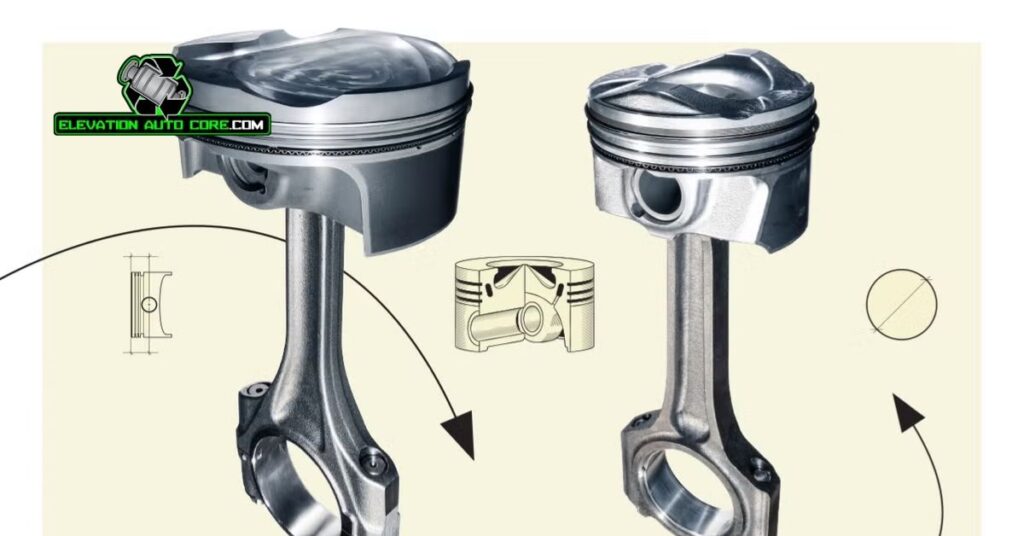
Pistons are cylindrical components that move inside an engine’s cylinders. Each piston helps convert energy from the combustion process into mechanical power, driving the crankshaft’s rotation. These components are typically made from aluminum alloys for their strength and heat resistance.
Without pistons, your engine loses the ability to generate power. They play a crucial role in maintaining compression, ensuring the air-fuel mix ignites efficiently. Piston rings, attached around the pistons, seal the combustion chamber and reduce oil leakage.
A damaged piston affects engine performance. You might notice symptoms like reduced power, oil consumption increases, or knocking sounds. Timely piston maintenance prevents costly repairs and prolongs engine life.
Signs You May Need To Replace Pistons
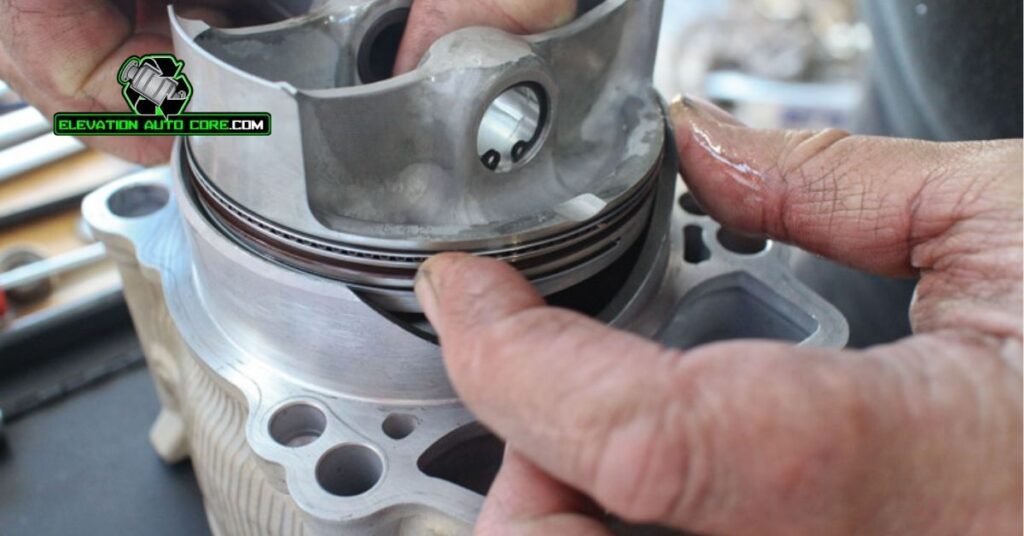
Various warning signs indicate potential piston damage. Recognizing these early helps prevent further engine issues and costly repairs.
Engine Performance Issues
Decreasing engine power often points to piston problems. Faulty pistons weaken compression, resulting in reduced acceleration and efficiency. Increased oil consumption can also signal worn pistons, as oil leaks into the combustion chamber. Pay attention to poor vehicle performance, especially under load or during acceleration.
Excessive Smoke From Exhaust
Thick white or bluish smoke from your exhaust suggests burning oil, a common indicator of piston damage. Gaps between worn piston rings and cylinder walls allow oil to seep into the combustion area. Consistent smoke emissions, especially while driving, highlight the need for immediate inspection.
Strange Noises From The Engine
Loud knocking or banging sounds often originate from piston issues. Loose or damaged pistons striking cylinder walls create unwanted noise. These sounds become more pronounced during high-speed or load conditions. Ignoring these noises risks severe engine damage.
How To Replace Pistons
Replacing pistons ensures your engine operates smoothly and efficiently. The process involves exact tools, detailed steps, and avoiding common mistakes.
Tools Required For The Job
Gather essential tools before starting to streamline the process. A socket set, torque wrench, and screwdrivers are necessary for disassembling and reassembling the engine. Use a piston ring compressor for installing new pistons into the cylinder. A micrometer or bore gauge ensures proper piston-to-wall clearance. Keep gloves, a drain pan, and engine oil handy for safety and cleanup.
Step-By-Step Replacement Process
Start by disconnecting the battery to ensure safety. Drain the engine oil and coolant to avoid contaminants during removal. Remove the cylinder head and inspect the valves for any additional damage. Detach the connecting rods carefully to access the pistons. Note the orientation of each component for accurate reassembly.
Check the cylinder walls for wear or damage. Hone or replace cylinders as needed before installing the new pistons. Attach piston rings according to the manufacturer’s specifications. Use the piston ring compressor to insert pistons into the cylinders, ensuring they fit securely. Align the connecting rods and tighten bolts with a torque wrench to the specified settings.
Reassemble the cylinder head and reconnect all components, including hoses and wiring. Refill the engine with recommended oil and coolant. Test the engine for smooth operation and verify there are no leaks or unusual noises.
Common Mistakes To Avoid
Avoid overlooking cylinder wall inspection, as unaddressed wear can cause future damage. Double-check piston-ring alignment because incorrect placement affects performance and lifespan. Don’t reuse old gaskets—use new ones to maintain a proper seal. Skipping torque specifications often results in loose or overtightened bolts, leading to serious damage. Ensure thorough cleaning of components to prevent debris from compromising engine function.
Piston Replacement Cost
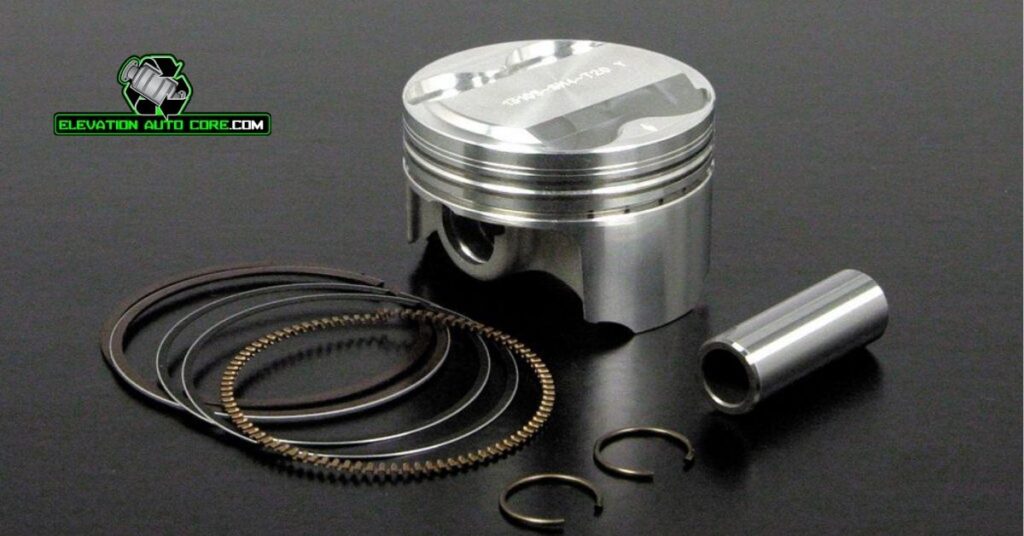
Piston replacement can be costly, depending on factors like vehicle type, labor charges, and part quality. Understanding these cost elements helps you plan effectively for this important repair.
Factors Affecting The Cost
The type of vehicle heavily impacts piston replacement costs. Engines in high-performance or luxury cars often require custom pistons, increasing expenses. Labor fees add to costs, especially for cars with complex engine designs that demand more time for disassembly and reassembly. The brand and material of the pistons also matter. Standard aluminum pistons are cheaper, while forged pistons, often used in performance vehicles, cost more.
Repair shop location plays a role in determining the labor rate. Urban areas typically have higher rates than rural locations due to differences in operating costs. The extent of engine damage contributes too. Severe wear or damage may necessitate additional work, like honing cylinder walls or replacing associated parts such as gaskets or rings.
Average Cost Breakdown
Replacing pistons can cost $1,000-$5,000, depending on various factors. For standard vehicles, parts typically range from $400-$1,500, while labor averages $600-$3,500. Forged pistons for performance engines can increase overall costs, often surpassing $5,000. Additional expenses, such as cylinder reconditioning or purchasing new gaskets, add $100-$500 to the total.
Below is a general cost breakdown:
| Category | Standard Range |
|---|---|
| Piston Parts | $400-$1,500 |
| Labor Charges | $600-$3,500 |
| Additional Repairs | $100-$500 |
DIY vs Professional Replacement
DIY replacement can lower costs but requires expertise and tools. If you’re experienced in engine repairs and own equipment like a torque wrench and piston ring compressor, you could save on labor charges. But, mistakes during installation, such as misaligned rings or skipped torque specifications, often lead to expensive damages later.
Professional replacement ensures accuracy, especially for complex engines or major repairs. Mechanics charge more but minimize the risk of errors during the process. For warranty protection or peace of mind, professional service is the safer option even though higher upfront costs.
Tips To Prolong Piston Lifespan
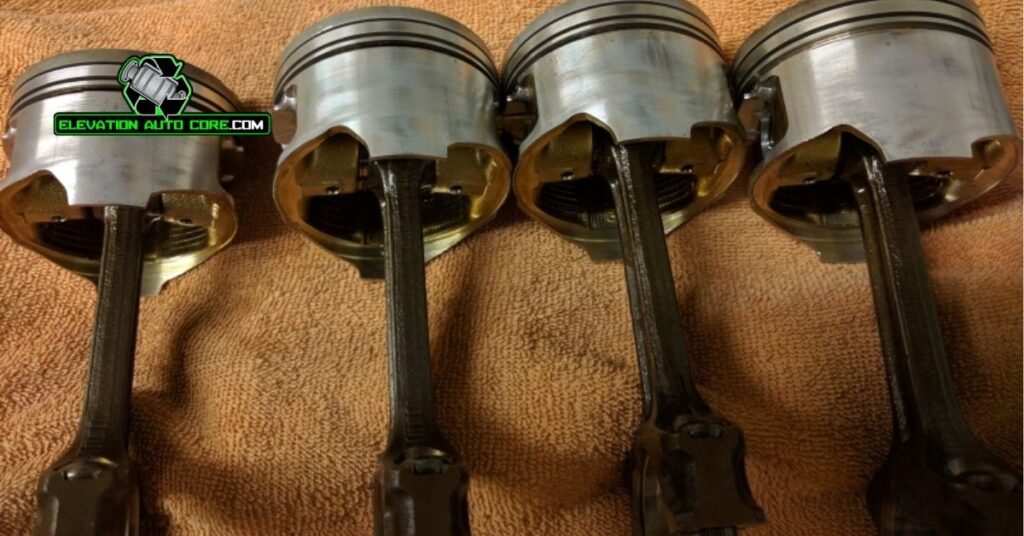
Regularly inspecting your engine components helps identify early signs of wear. Scheduled oil changes keep the lubrication system efficient, reducing friction and preventing damage to the pistons. Use high-quality engine oil suitable for your vehicle to minimize residue buildup and maintain peak performance.
Clean air filters play a critical role in preventing debris from entering the combustion chamber. Replace filters as recommended in your vehicle’s maintenance schedule to avoid contaminants causing scratches or damage to piston surfaces. Proper fuel quality is essential; low-grade or contaminated fuel can lead to carbon deposits, affecting piston efficiency and lifespan.
Avoid aggressive driving habits like sudden acceleration or engine over-revving, as they place excess stress on the pistons. Warm up the engine before driving, especially in cold climates, to allow proper oil circulation and thermal expansion of components. Monitoring engine temperature prevents overheating, which can warp or crack pistons.
Adhering to routine tune-ups ensures overall engine health. Addressing minor engine issues promptly, such as misfires or detonation, stops damage from spreading to pistons or other internal parts.
Conclusion
Replacing pistons is a crucial task that demands attention to detail, the right tools, and a solid understanding of your engine’s needs. Whether you choose to tackle the job yourself or rely on a professional, addressing piston issues promptly can save you from more extensive and costly repairs down the road.
By staying proactive with maintenance and recognizing early warning signs, you can extend the life of your pistons and maintain optimal engine performance. Investing in quality parts and proper care will ensure your vehicle runs smoothly and efficiently for years to come.

